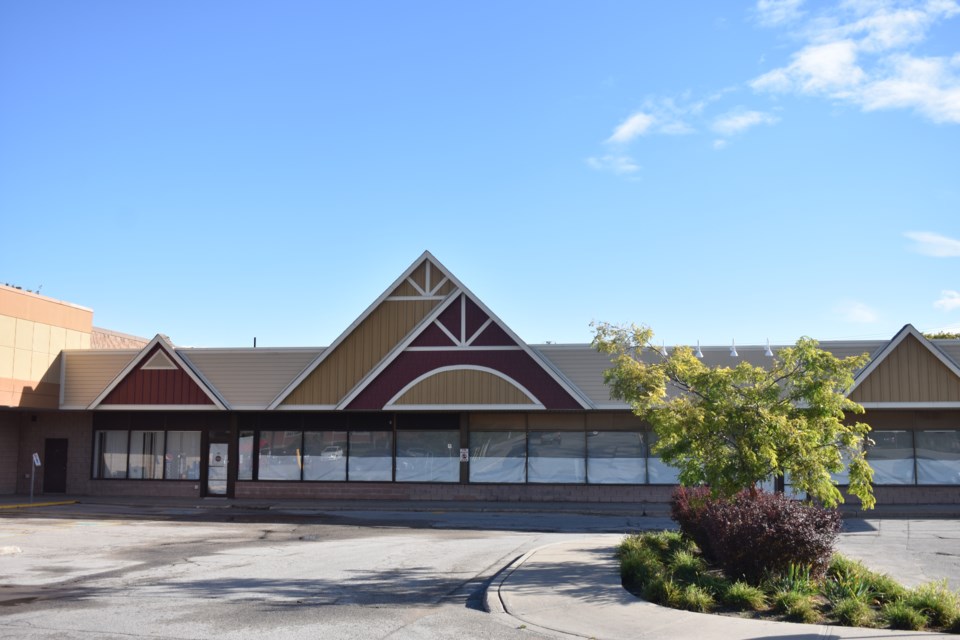Typically, when a group shows up at city hall to address city councillors, they are looking for financial support or are angry about the direction the municipal government is heading.
That was not the case this week, when three “community elders” made a deputation to laud the city’s approach to waterfront development, while urging them to protect and promote the city’s identity as the project takes shape.
Michael Jones, Valerie Powell and Ted Reeve, representing a group which also includes Kim Fedderson, Gord Ball, Dave Stinson, Tasha Schmidt and others, said they are committed to “travelling with” the city as it embarks on the development of the waterfront.
Several years ago, the city purchased the Metro Plaza at 70 Front Street to create an almost 10-acre piece of city-owned land at the waterfront.
The city has plans to demolish the east section of the mall to punch Coldwater Road through to the lake and is seeking a private developer, through a request for qualification (RFQ) process, to turn their “preferred vision” of a mix of residential and commercial enterprises into a reality.
“We believe this is an anchor development that represents much more than a real estate development,” said Reeve. “It represents the ethos of who Orillia could be in the 21st century.”
Powell said most in the community support the city’s ambitious efforts, but most, she said, also have strong beliefs about the end result.
“We want you, as stewards, to ensure the development does not become an enclave hived off from the rest of downtown,” said Powell.
“The new neighbourhood needs to become an inviting and welcoming part of our city as a shared, integrated space,” she said.
“People naturally migrate to the water … to meet, to dream, to relax, to play,” she said. “The waterfront development can enhance this gathering place, keep it alive for all ages or it can become a barrier.”
She said the development is a “legacy project” council must take responsibility for.
Powell said the development needs to embody “a front porch culture, animated social spaces, live/work spaces, incubator spaces, inviting refreshment patios, diversity of income and accessibility, an economic engine (and) leading-edge ecological design.”
While lauding the vision, she said community elders are worried the language that ensures that vision “is not clearly evident” in the documents being circulated to developers nor is it emphasized in the scoring process that will determine the winning design.
“We ask you, as stewards, to include the language of the vision in the RFQ and RFQ scoring,” she said. “This is an opportunity for a progressive developer and Orillia to gain national recognition.”
Jones, meanwhile, urged city fathers to ensure Orillia’s story is not forgotten amid the budgets and deadlines.
“Too often the places we create don’t include our stories,” lamented Jones. “Every community needs a defining story ... our places become the public stage.”
Orillia’s story is one of a gathering place, said Jones, noting Mnjikaning (the Ojibway name for Rama) means gathering together - something that has occurred since the fish weirs were embedded in the lake bottom 5,000 years ago.
Orillia is also Mariposa, that fictional town created by Stephen Leacock, noted Jones.
He said Orillia is lucky to have these two defining stories and they need to be represented in the waterfront development.
“Too often we dull our lives and our communities and our landscapes by the utilitarian ways in which we conceive of them,” said Jones.
“We need to think large. We need to cloak ourselves in the stories in context of big ideas and include a sense of community and history.”
Coun. Jay Fallis jumped on that theme when he suggested as an extension of the waterfront, it might be prudent to recognize the significance of Coldwater Road as it is expanded and extended.
“For those who aren’t familiar, it really is a great story,” Fallis said of Coldwater Road, “an old Indigenous portage route … that dates back possibly thousands of years.”
He floated the idea of recognizing the route’s historical significance somehow - an idea Jones lauded.
“There are a lot of opportunities for creating story landscapes … that would be an example of one,” said Jones, noting such things help create a destination economy. “There’s a real rich history we could shine a light on.”
Mayor Steve Clarke said he and his colleagues support “a lot” of the ideas the group touted.
“The reason we purchased the property is so it wouldn’t be developed in a way that wouldn’t make (us) proud and to tell those stories,” said Clarke, noting it was city council’s job to “facilitate the right kind of development.”
The RFQ was recently circulated to developers. The deadline for submissions is May 27.
The RFP is expected to be released in late June. Residents will have an opportunity to comment on the proposals before any final decisions are made.
For more information on the waterfront redevelopment project, click here.
